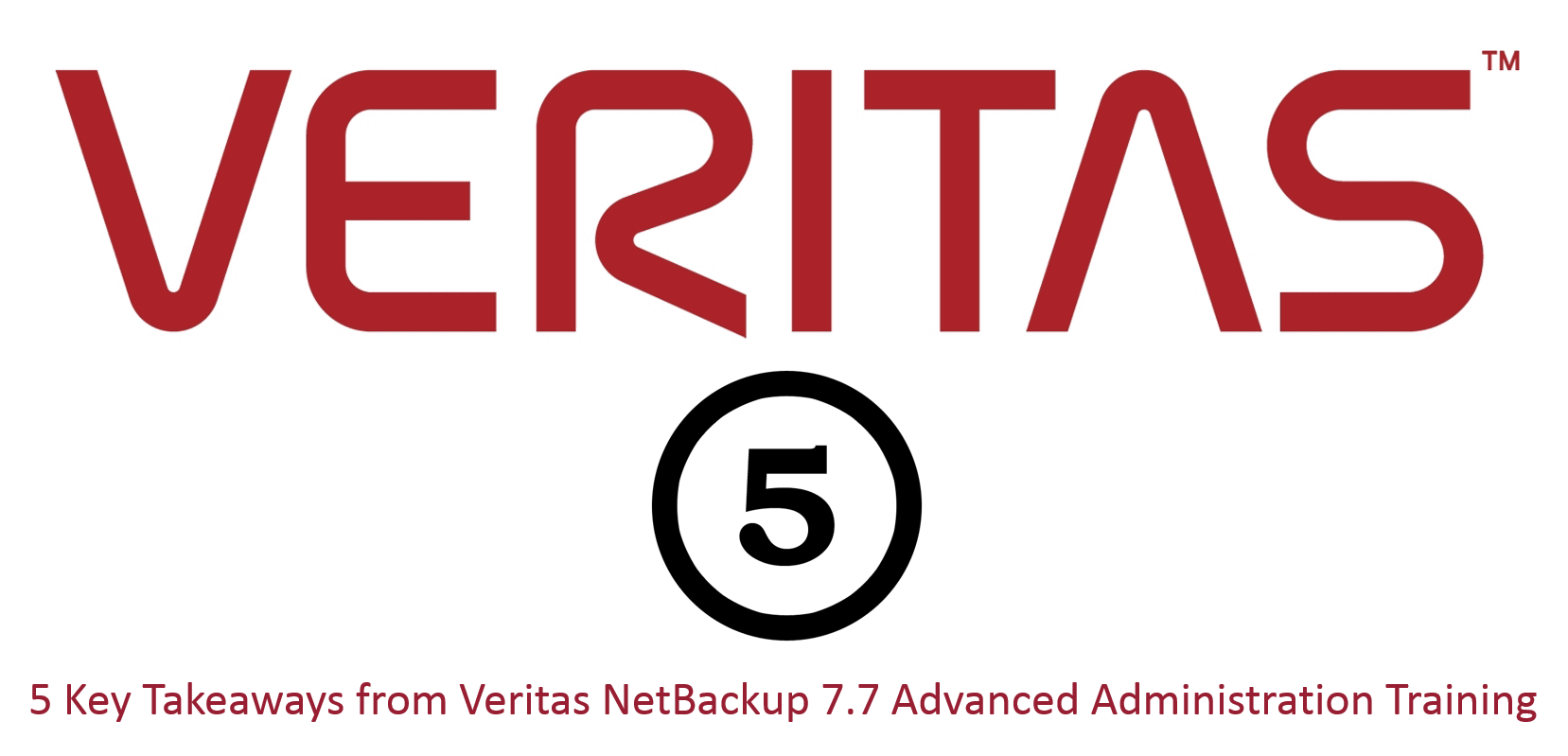To outsource or not, that is the question – and it’s becoming a more frequent conversation among CTOs. Outsourcing an application or workload to a 3rd party managed service or cloud provider can deliver multiple benefits, from reducing CAPEX costs to freeing IT staff to work on more strategic initiatives. But before you jump in, it’s important to make sure you are partnering with the right service provider. Here are some of the questions you should ask:
Read MoreOracle backups have always been a challenge to manage and support given the disparate administration groups typically involved. If you are a database administrator (DBA), you need the flexibility to efficiently create backups and run restores for development cycles and upgrades. Backup administrators need to balance the backup schedule with resources and prioritized data.
Read MoreHere at our headquarters in Lexington, MA, we recently held one of the first Veritas NetBackup 7.7 Advanced Administration Training classes in New England. As NetBackup aficionados, we were anxious to learn what the certified instructor had to share on what’s really new in the latest NBU 7.7 rev.
Beyond the marketing hype, here are the 5 takeaways we believe fellow IT storage admins will find worthwhile:
Many of us have a closet, attic, or even a basement corner for all the things that we’re not using but just aren’t ready to throw away quite yet. We just assume we’ll get to sorting what stays and what goes some other day.
The same is true for businesses – and usually the larger the enterprise, the more dark data they have. Many IT departments are burying huge amounts of data, resulting in digital mountains that are increasingly unwieldy to manage, let alone easily search through when key data discovery is needed.
Does your IT organization fit this description? If so, it’s time to recognize you have a problem. It’s called digital hoarding. You, my IT friend, are a data hoarder.
Given the great highs and lows experienced by financial institutions over the past 10 years, there’s no doubt that today’s industry is highly resilient.
The same is also true for the industry’s IT teams. In the past, IT has been routinely asked to navigate everything from mergers & acquisitions to sophisticated security threats and emergent application demands from a fast growing segment of mobile consumers.
Read MoreA document retention policy is in reality a document destruction policy. Therefore, a key reason for an organization to adopt a document retention policy is to establish a program for the deletion/destruction of information that is not required for business, regulatory and other needs. This reality is made necessary by the fact that digital information is growing at an unprecedented rate and that much of it is contained in “unstructured” storage such as email, SharePoint and shared network drives. Data hoarding not only increases direct information technology costs but it presents other substantial risks and costs to an organization ranging from discovery of “smoking gun” documents during investigation, litigation or audit; to reputational damage from information security breaches (hacking).
Read MoreIn 2005 the ABA Business Law Section published a short book titled, Sailing in Dangerous Waters: A Director’s Guide to Data Governance. It warned in stark terms:
Those Directors who defer or delegate to specialized personnel their understanding and command of data governance will be at increasing risk of incurring personal liability for failing to fulfill their fiduciary duty of care to ensure that their companies comply with rapidly emerging legal requirements concerning deficiencies in data governance.[i]
Read MoreGartner defines Information Governance as an accountability framework that includes the processes, roles, standards, and metrics to ensure the effective and efficient use of information in enabling an organization to reach its goals. One of the core requirements of a legally defensible Information Governance program is a reasonable and consistently applied Records & Information Management system (“RIM”). Accountability and defensibility hinge on the ability of an organization to govern its information in all formats and on all media, and to ensure or prove that it is compliant with all legal requirements.
Every gambler knows
- The Gambler lyrics © Sony/ATV Music Publishing LLC
Some of the more frequent questions asked of eDiscovery attorneys when teaming with IT professionals on archiving and other retention policy projects, relate to the timing, scope and especially the release of legal holds. Misconceptions about “Legal Hold” abound, many of them (unfortunately) coming from litigation attorneys stuck in the paper document past or those who do not understand data systems architecture. One common source of overbroad Legal Hold retention is the misapprehension of the risk of severe judicial sanctions for the destruction (aka spoliation) of evidence.
Too many attorneys take what they consider to be the safe route and continue to advise enterprises to keep too much for too long. As Kenny Rogers’ Grammy award-winning song reminds us, risk can cut both ways. Not only does an overbroad legal hold increase the cost of data storage and maintenance, it increases the cost of legal review of held documents, and may result in retaining “smoking gun” documents that could have been legitimately deleted before or between legal holds. You’ve gotta know when to fold ‘em too!
“Do more with less” has become the mantra folks in IT have come to live by. It is the reality we live with every day. We must be as efficient and effective as possible to be able to compete in today’s market. We must find a way to be viewed as an innovation center, and not a cost center to the business.
How we go about enabling the enterprise to innovate is what sets us apart. It all starts with a good plan and to have a good plan, you must understand the strengths and more importantly, the weaknesses in your IT environment.
Read MoreSubscribe to the Daymark Blog
Latest Posts
Browse by Tag
- Cloud (68)
- Security (42)
- Microsoft (38)
- Azure (35)
- Partners (32)
- Data Protection (29)
- Data Center (26)
- Backup (24)
- Daymark News (23)
- Compliance (20)
- Data Governance (18)
- Veritas (18)
- Virtualization (18)
- Storage (17)
- CMMC (13)
- Cloud Backup (13)
- Cybersecurity (13)
- Disaster Recovery (13)
- Managed Services (13)
- Government Cloud (10)
- Featured Gov (9)
- Industry Expertise (9)
- GCC High (7)
- Networking (6)
- AI (5)
- Hybrid Cloud (5)
- NIST SP 800-171 (3)
- Reporting (3)
- Copilot for Microsoft 365 (2)
- GDPR (2)
- Services (2)
- Cloud Security (1)
- Mobile (1)
- Reporting-as-a-Service (1)













